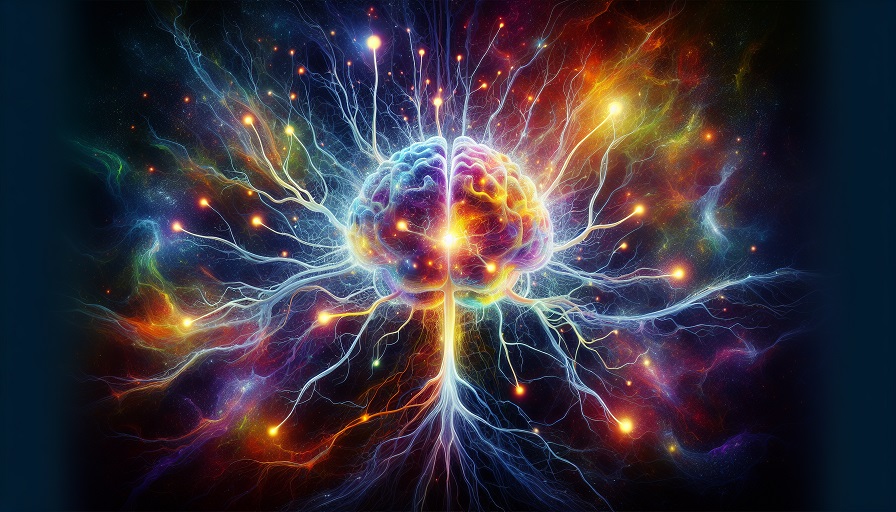
You wave back at someone who wasn’t waving at you. You tell a joke that falls flat. You accidentally call your teacher “mom.” Instantly, your face burns, your stomach drops, and you wish you could crawl into a hole. Awkward moments are universal, but here’s the surprising twist: they may be good for your brain. These cringe-worthy experiences, though uncomfortable, help sharpen self-awareness, strengthen social skills, and even build resilience. In short, awkwardness is like a mental workout. Painful in the moment, but beneficial in the long run.
Contents
What Awkwardness Really Is
Awkwardness happens when social expectations and reality collide. We know the “rules” of interaction, but when we misstep – by saying something odd, mistiming a gesture, or failing to read the room – we feel exposed. The discomfort is actually a signal from the brain that something went off-script.
The Social Alarm System
Awkwardness functions like an alarm. It tells us, “That didn’t land the way you intended.” The jolt of embarrassment heightens awareness, forcing us to analyze what went wrong and adjust in the future. Far from being useless, this alarm keeps us socially calibrated.
Universality of Cringe
It’s easy to think you’re uniquely awkward, but research shows that nearly everyone carries embarrassing memories. The fact that awkwardness is universal suggests it has an evolutionary function. If it were truly harmful, our ancestors would have abandoned it long ago.
Awkwardness as Brain Training
Every time you blush, stammer, or replay a clumsy moment in your head, your brain is learning. Social slip-ups may sting, but they activate key cognitive processes that refine how we think and interact.
Strengthening Self-Awareness
When you mess up socially, your brain sharpens its mirror. You become more attuned to how you’re perceived, and you adjust accordingly. This heightened self-awareness improves future interactions, helping you build smoother relationships over time.
Boosting Error Correction
Psychologists call it “error-related negativity” – the brain’s immediate electrical response to mistakes. Awkwardness triggers this response, essentially giving the brain a zap that says, “Don’t do that again.” The stronger the cringe, the stronger the memory, which is why you never forget that time you said “you too” when a waiter told you to enjoy your meal.
The Social Intelligence Connection
Awkward moments aren’t just personal – they’re deeply social. Each stumble gives us feedback on group norms and expectations, fine-tuning our social intelligence.
Learning the Rules
Much of social life runs on unspoken rules. How close to stand, when to laugh, when to speak – these aren’t written anywhere, but violating them creates awkwardness. Each awkward encounter clarifies the rules, strengthening our ability to navigate social dynamics with greater skill.
Building Empathy
When you’ve lived through your own awkward disasters, you become more compassionate toward others. Seeing someone else fumble triggers empathy rather than scorn, because you know how it feels. In this way, awkwardness makes us kinder and more socially connected.
Awkwardness and Resilience
Perhaps the greatest gift of awkward moments is resilience. Discomfort forces us to face vulnerability, and learning to recover from it makes the brain tougher.
Emotional Tolerance
Repeated awkward experiences teach us that embarrassment, though painful, is survivable. Each time you endure a cringe-worthy moment without the world ending, your emotional tolerance increases. This strengthens mental resilience for bigger challenges beyond social slips.
The Growth Zone
Awkwardness often appears when we step outside comfort zones – starting a new job, speaking in public, or navigating unfamiliar cultures. These moments signal growth. If you never feel awkward, you might not be pushing yourself enough. The brain strengthens most at the edge of comfort, and awkwardness marks that edge.
The Creative Edge of Awkwardness
Interestingly, awkwardness can also fuel creativity. Creative work often feels uncomfortable because it risks rejection or misunderstanding. The same cringe that comes from a bad joke can arise from presenting a bold new idea. Those willing to endure awkwardness often push boundaries, innovate, and open new doors.
Failure as Feedback
Awkwardness reframes failure as feedback. A strange look from an audience isn’t just humiliation – it’s data. By analyzing awkward responses, creators, performers, and leaders refine their craft. The willingness to face awkwardness often separates those who stagnate from those who grow.
The Courage to Be Awkward
Great thinkers and innovators often embrace awkwardness as part of the process. They accept that discomfort is the price of originality. In this way, awkward moments act as stepping stones, each one strengthening the brain’s ability to risk, adapt, and create.
How to Embrace Awkward Moments
If awkwardness is brain training, the trick is to handle it wisely. Instead of burying cringe memories, we can use them as fuel for growth.
Reframe the Cringe
Rather than replaying awkward memories as failures, view them as practice rounds. Each one proves you were willing to engage, experiment, and risk connection. That effort itself is a strength.
Laugh It Off
Humor neutralizes awkwardness. When you laugh at your own slip-ups, you not only reduce personal discomfort, but you signal resilience and confidence to others. Owning the awkward moment often transforms it from weakness into relatability.
Seek Awkwardness
It may sound odd, but deliberately embracing situations that risk awkwardness – like trying improv, speaking up in meetings, or striking conversations with strangers – can expand comfort zones. Each awkward encounter strengthens the brain’s social and emotional muscles.
Awkwardness as a Hidden Superpower
Awkward moments are uncomfortable, but they’re also transformative. They sharpen self-awareness, build empathy, and increase resilience. They show us where growth happens, and they remind us that imperfection is not only survivable, but essential. The next time you cringe at a misstep, remember: your brain just got a little stronger. Awkwardness isn’t a weakness to erase – it’s a hidden superpower worth embracing.

